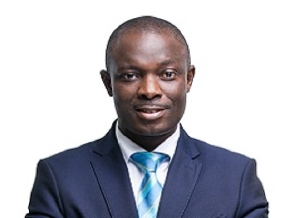 Kwaku Kwarteng, Deputy Minister of Finance
Kwaku Kwarteng, Deputy Minister of Finance
Deputy Finance Minister Kwaku Kwarteng has revealed that the government is not done clearing the debts for the energy and financial sectors of the economy.
Payments of these debts led to the rising borrowing by the government.
He told TV3’s Etornam Sey in an interview on Wednesday, October 28 that regarding the ongoing debate of the public sector debt that “There are two major sources that contributed to Ghana’s debt before the covid came.
“These are the treatment of the energy sector and treatment of financial services which we inherited. Even in respect of the energy sector, we are still not out of the woods yet, we still have some indebtedness to deal with because what we inherited by way of debt was huge.
“In the same way even in the financial services sector we have done a lot, we have paid depositions, we have dealt with many of the liabilities in the past, some are still outstanding.
“When COVID-19 came we needed to borrow more in order to contain the pressures of covid but also in order t0o fill the gap relating to the underperformance of revenue. All that has contributed to our current debt status
“But in spite of that if you still compare Ghana’s debt performance to the global trend there is no doubt that we have managed the situation quite well and suggestions that Ghana is going to go HIPC and we are highly indebted for me is a bit far-fetched.”
He, however, conceded that the concerns about Ghana’s rising public debt expressed by a section of the Ghanaian public is a legitimate one that has to be taken seriously.
He said a rising public debt is not a situation no country would want to bring upon itself.
“There are concerns about our country’s rising debt, that is a concern for everybody. No country should assume you can go on and just borrow yourself out of poverty, and so those concerns for me are legitimate”, he said.
Ghana's public debt stock currently stands at 65%, with the latest projection by the IMF that the country could end the year with a debt stock of about 76.7%.
This has raised questions about the health of the economy including whether or not the country has been classified as a HIPC country by the World Bank.
The deputy finance minister, though acknowledges the rising public debt, dismissed that the country has been declared HIPC as had been purported in some quarters of the media.
“Of course, Ghana is not HIPC. I don’t think anybody has suggested we are HIPC”, he responded when asked whether or not Ghana is HIPC.
But he maintains there is no cause for alarm, as what matters is what the future holds and not the current state of affairs.
“However, in the case of Ghana, if we make observations for our debt build-up, we need to go into it and find out why then we will know whether the trend is likely to continue in the future or it will not. Then we will test the economic strategies that are producing those outcomes and make a determination for ourselves going forward”, he explained.
“The one billion we get, add to our debt portfolio. So, while we are discussing debt, we ought to understand that the money that we needed to procure in order to deal with expenditures needed in the line of COVID-19, also added to our debt”, he said.